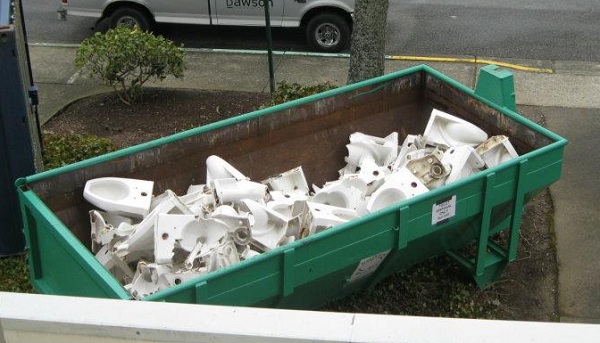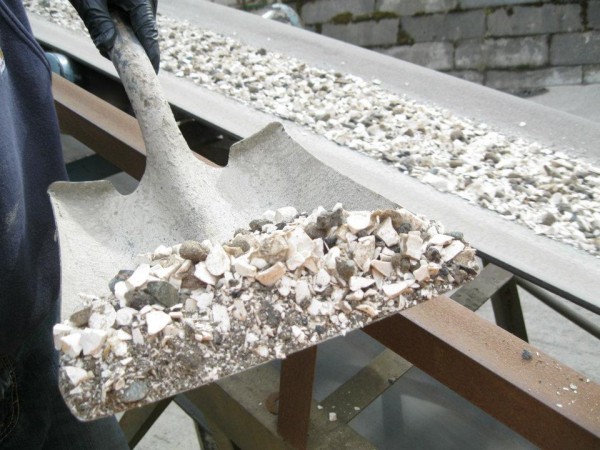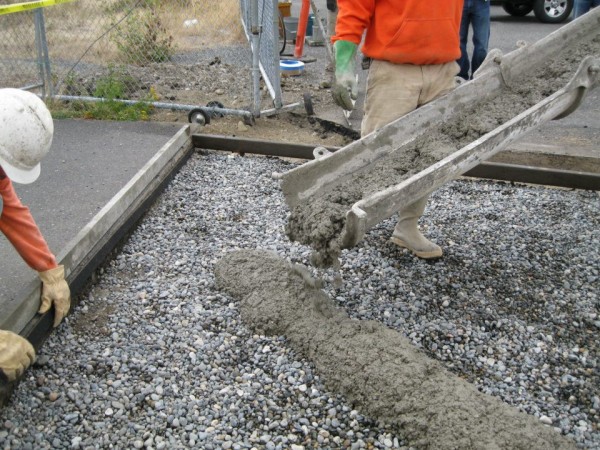Forget potholes—the streets of Bellingham, Wash., are filled with potties. Well, OK, maybe not the streets, but a multi-use path, part of the Meador-Kansas-Ellis Trail project between Meador Avenue and Ellis Street. And that project was recently honored with the first official Greenroads certification for its innovative use of porcelain from recycled toilets, among other ultra-green measures.
Here’s how it came about: When city project engineer Freeman Anthony got wind that a local nonprofit was replacing hundreds of toilets, he called up his regular ready-mix concrete company and asked if they could do anything with that. “They said: ‘Yeah, I think we can do something with that,'” Anthony said. “‘We’ll throw it through the crusher and see what we come up with.'”

What they came up with—after crunching through about 5 tons of toilets—constituted roughly a quarter of the volume of one section of the sidewalk encompassed by the project (developers dubbed the pathway material “poticrete”). Add that to the impressive 80 tons of recycled concrete the project put to work in sidewalks, curbs and gutters, pushing the roadway asphalt’s recycled content up to 30 percent, and what you’ve got is Greenroads’s first-ever silver certification.

The Greenroads rating system was developed at the University of Washington (UW) to promote sustainable roadway construction. Its aim is to offer a roadway equivalent to the popular LEED rating system used for green buildings. According to principal investigator Stephen Muench, a UW associate professor of civil and environmental engineering, Greenroads is currently the only roadway accreditation system that is actively certifying projects.
“It’s a big milestone for us,” said Jeralee Anderson, who recently defended her UW doctoral work in developing the Greenroads system. She noted that the certification of this first project marks the culmination of many years of work.
After first unveiling the rating system in 2010, the team Anderson was a part of worked with the UW’s Center for Commercialization to launch a nonprofit company based in Redmond. The company currently operates as the caretaker of the Greenroads Rating System (much like the relationship between the U.S. Green Building Council and the LEED accreditation) and provides independent, third-party certification of sustainable roadway projects.

The university’s original research leading to the development of this certification was funded by Transportation Northwest, the State Pavement Technology Consortium, the Western Federal Lands Highway Division and the Oregon Department of Transportation. The Greenroads Foundation has gone on to garner sponsorship from eight companies in the transportation and construction industries.
While the the Meador Kansas Ellis Trail project in Bellingham—which also incorporate eco-infrastructure such as LED streetlights and porous concrete—is the first to receive certification, Greenroads expects to certify at least three more road projects over the next few months. The 12 projects now under consideration include eight in Washington and one each in California, Colorado, Nevada and Texas. The foundation also has a number of international collaborations under way.